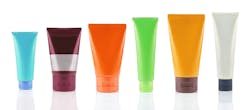Retailers Failing to Protect Consumers from Toxic Chemicals
Retailers just received their report card and it’s not good.
The 2024 Retailer Report Card, from Toxic-Free Future, finds that the largest retailers in the U.S. and Canada are failing to protect customers from toxic chemicals and harmful plastics found in the products and packaging.
The average grade for retailers is a D+, with 17 retailers earning failing F grades including brands such as 7-Eleven, Five Below, LL Flooring, McDonald’s, and Sally Beauty. The report grades the chemical policies and practices of 50 retail chains covering more than 200,000 stores in the U.S. and Canada.
Lowest-ranking retailers include restaurants like Subway and Yum! Brands, along with the dollar store chain Five Below. “Nine years after our call to eliminate hazardous chemicals, dollar stores still have progress to make,” said Jose Bravo, national campaign coordinator of the Campaign for Healthier Solutions, in a statement.
As a group, 80% of retailers failed to implement policies that ensure safer alternatives to harmful chemicals and plastics. A reason for this could be that more than half of the retailers surveyed (54%) do not ask their suppliers to disclose the chemical ingredients used in their products. “Retailers must require ingredient transparency, ban the most hazardous chemicals and plastics in products and packaging, and invest in safer solutions,” said Cheri Peele, senior project manager for Toxic-Free Future, in a statement.
Some Good News
The report found more than half of retailers are banning some dangerous chemicals and harmful plastics, with 68% percent of retailers making progress reducing certain toxic chemicals and plastics such as per- and polyfluoroalkyl substances (PFAS) “forever chemicals” and polyvinyl chloride (PVC) plastic.
A few companies, such as Apple, Sephora, Target, and Walmart earned an A- or higher, with policies in place to ban the worst chemicals and plastics and invest in safer alternatives.
Other companies including Amazon, Office Depot, Staples, Target, and Walmart are getting credit for selling private-label products that are EPA Safer Choice certified. This certification is one of the only third-party certifications that fully evaluates the hazards of all chemical ingredients, ensuring chemicals are verifiably safer.
Several retailers in the beauty and personal care products sector are making good progress. Ulta Beauty, with a grade of B-, is recognized as the most improved retailer, nearly doubling its score since 2021. Both Sephora and Ulta Beauty are participating in ChemFORWARD’s Know Better, Do Better Collaborative, where companies in the beauty and personal care products sector are working together to comprehensively assess ingredients and find safer alternatives.
Steps Companies Can Take
The report also evaluates retailers against the Ban the Bad Priority List, a list of chemicals, chemical classes, and plastics of high concern that retailers should prioritize for reduction and elimination.
A recent report demonstrates what retailers can do to improve their grades: assessing ingredients, filling data gaps with hazard assessments, and phasing out the most harmful chemicals.
Another resource is The Four Essential Elements for a Safer Marketplace, which includes: adopting comprehensive safer chemicals policies; requiring full transparency from suppliers; restricting toxic chemicals and plastics, such as PFAS and PVC, in products and packaging; and implementing safer solutions to chemicals and plastics of high concern.
